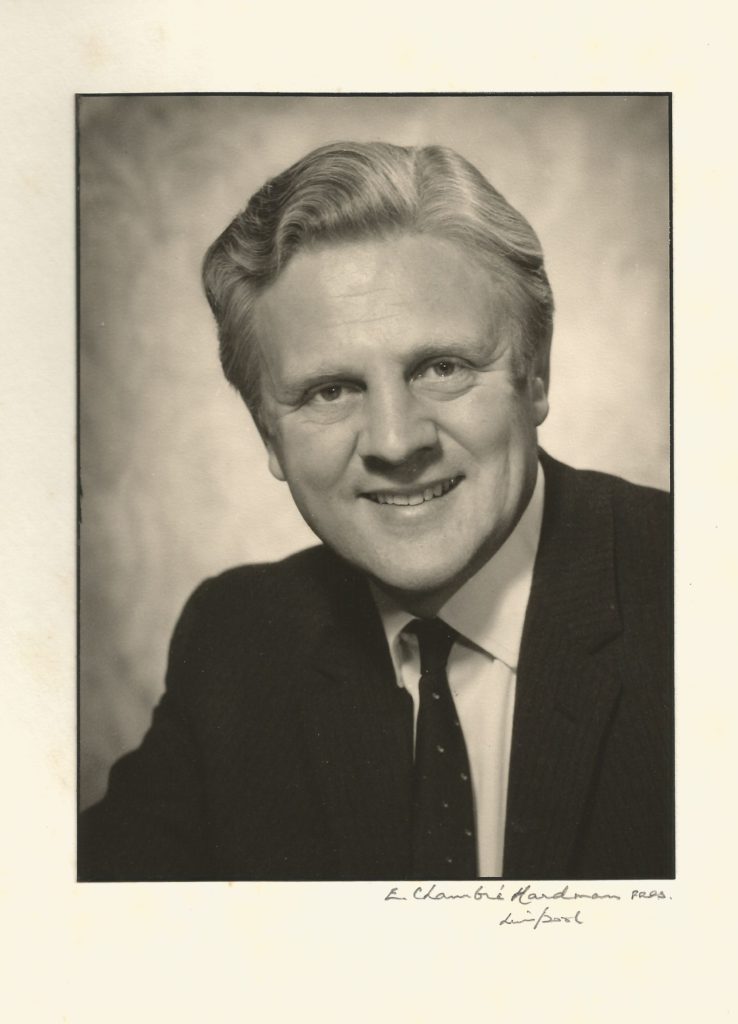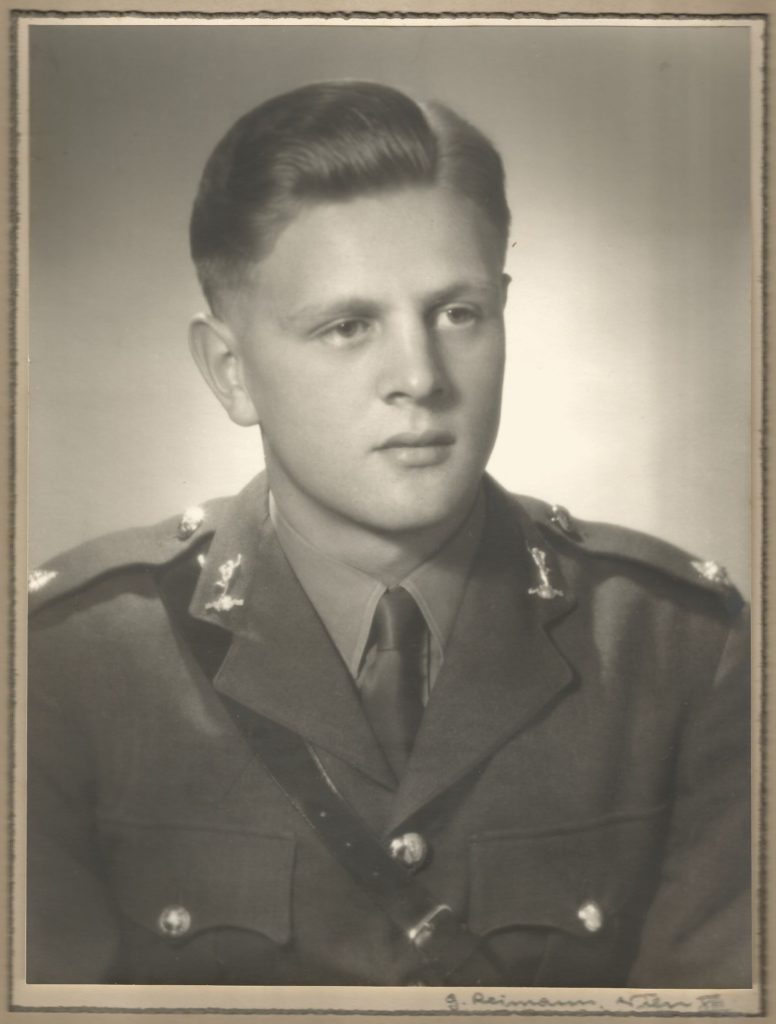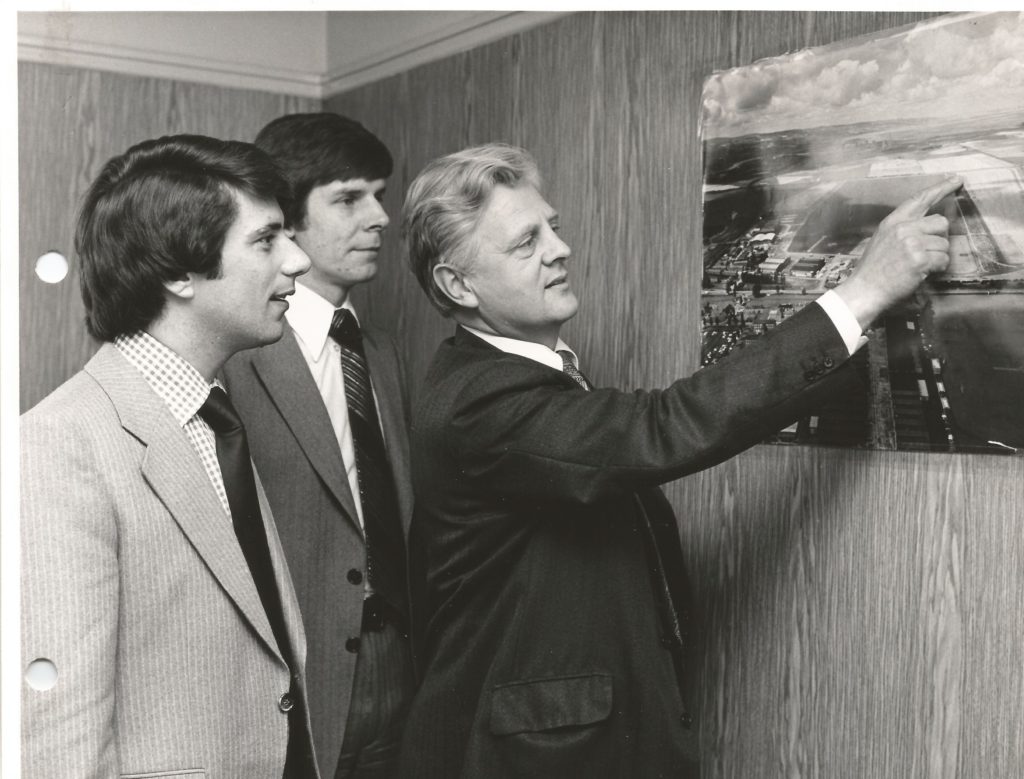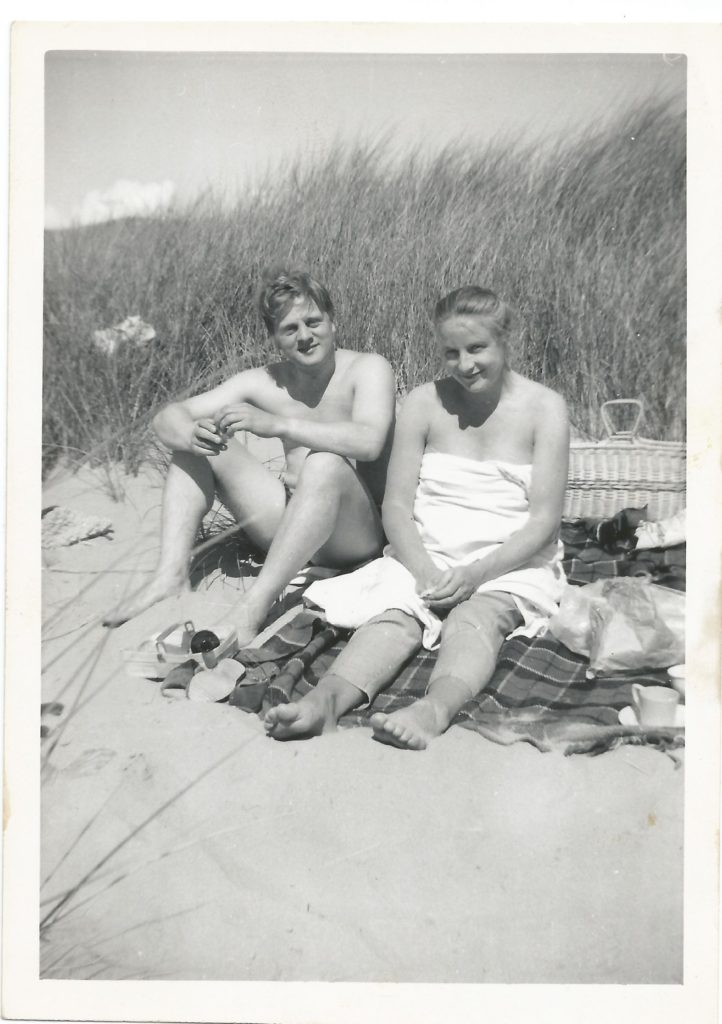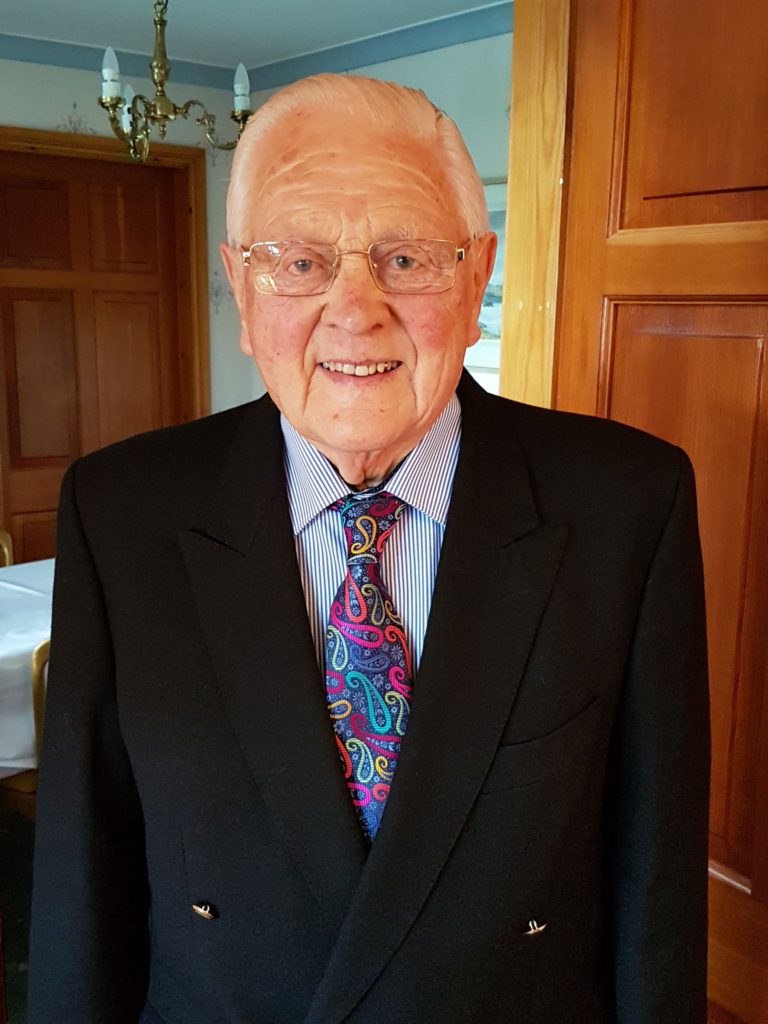
16 years ago, we decided to buy a dog. It would be a family pet but its owner, within the family, would be Richard. Tiggy was born in East Grinstead on 8 January 2007. She had a distinguished pedigree, beautiful markings and an enchanting black face. We picked her up when she was eight weeks old and she lived with us, in the heart of our noisy, energetic family, for 15 years and 7 months. Today we said goodbye to her. She was suffering from dementia, she had increasing mobility problems (she was always on the money when it came to trends), and she no longer had a good quality of life. It was the hardest decision I have ever taken. Period.
This Blog for a Dog is my love letter to the most wonderful, witty, funny, quirky, energetic, characterful creature I have ever met.
Tiggy went by several names. Tiggy, Tiggles and Mrs Woose were the most common ones we used. Towards the end of her life when she could no longer safely get upstairs to my office, we operated the ‘Stana-Woose-Lift’ which was Tiggy under one arm, cup of coffee or book in the other hand. It was a bit precarious, but it worked well. It was usually requested by loud barks of protest at being left on the wrong floor. All her life she had a way of making her feelings clear and in most instances she was easy to read. Her most enchanting form of communication was her smile. You don’t believe me that a dog can smile? This one could. If she saw one of us from a distance, say from the end of the garden or coming up the road, she would smile at us. Not with her mouth but with her entire body. She had a way of sashaying her hips, tilting her head to one side, twitching her ears up and back, and bounding towards you with a wave of affection that just shouted: ‘Hello! I love you, love you, love you!’ It was the most uplifting greeting, and it came from the heart.
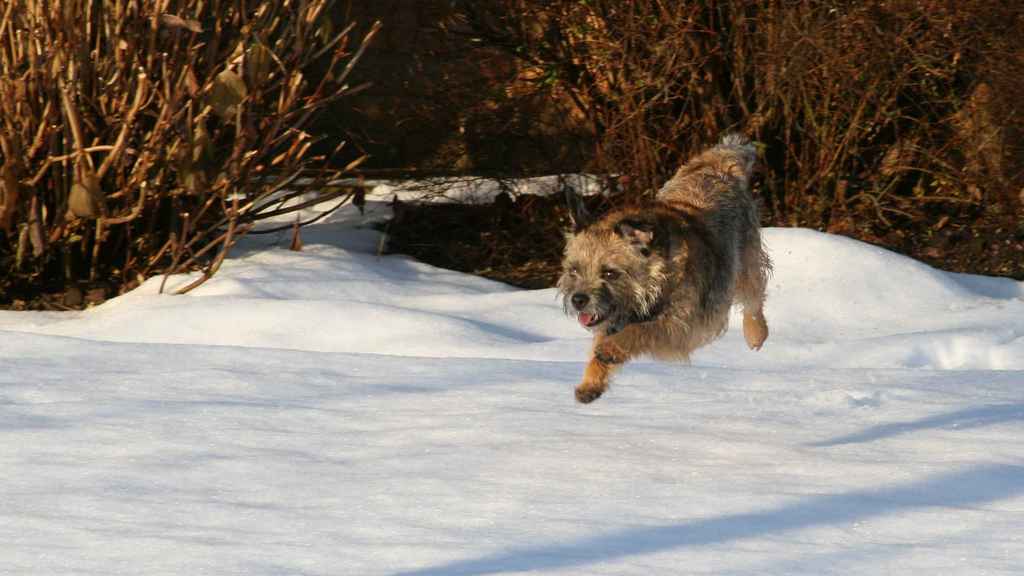
Richard commented today that she was a dog that was extraordinarily in tune with nature. That may sound a strange thing to say about an animal, but it was true. More than any of our other dogs, she paid close attention to her environment. On summer evenings she would meander around the garden, sniffing at plants, investigating little spaces in the undergrowth or in the borders. She loved the smell of certain flowers and had a passion for lying in a Hebe bush close to the house. Often, she would ‘rearrange’ the bush to suit, which meant ripping off sprigs in order to make herself comfortable. She also interacted with the fauna, stalking squirrels oh-so-quietly, hunkered down like a lioness in the grass. She never caught one, but she often came close. She had rather more success with Sandy’s bantams, which she caught quite regularly. She never killed them; she simply caught them and then lay on them until one of us spotted her and called her off. The bantam, usually Snowy, would get up, shake herself, cluck crossly, and get back to doing what bantams do best, which is digging up the edges of my borders.
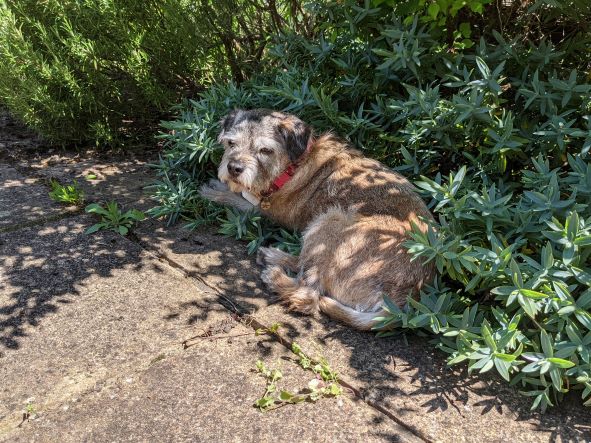
Unlike other Borders, Tiggy was not a thief, though she was an opportunist. In the summer one of her great loves was to attend the many rowing events we went to with the boys. She was well-behaved and had excellent recall, so we were always happy to have her off the lead. When she was about two, we were all on the towpath watching the racing at the City of Oxford Regatta. Simon was with Tiggy when he saw her stand up on her hind legs and very gently but firmly remove the ‘dog’ from a hot dog being held at a tempting height by Richard’s rowing coach. Triumph for Tiggy, fury on the part of the coach. He never liked her after that. On another occasion we had left a pepperoni pizza on the side in the kitchen to defrost. In retrospect it might have been too close to the edge. When we returned, we found the pizza on the floor. Part of the base, an almost perfect half-moon, remained on the floor and next to it a small pile of onions. She had eaten the pepperoni but spat out those pesky onions.
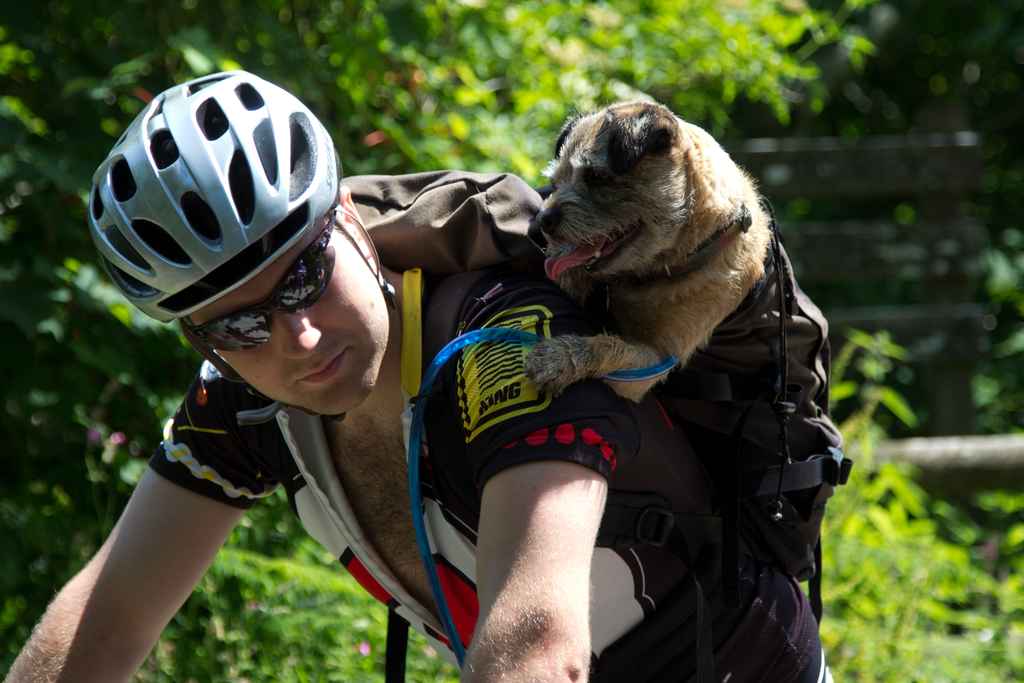
In her hey day she had not only great stamina for walks and mountain bike rides, but she had speed. Chris once clocked her doing 23mph on the footpath up our road. Not bad going for a little dog. Walking and running in the countryside close to home, in the Chilterns, the Lake District, Devon, Yorkshire and Northern Scotland, was her idea of bliss. She came on a dozen holidays to the Lakes and loved nothing better than to find a handsome rock on which to stand, ears blown back by the wind, staring at the world around her as if she owned it. She was sure-footed and unafraid of heights, so she was the ideal walking companion. She also enjoyed swimming, so a quick dip in a tarn or stream, preferably in pursuit of a stick, was always a pleasure.
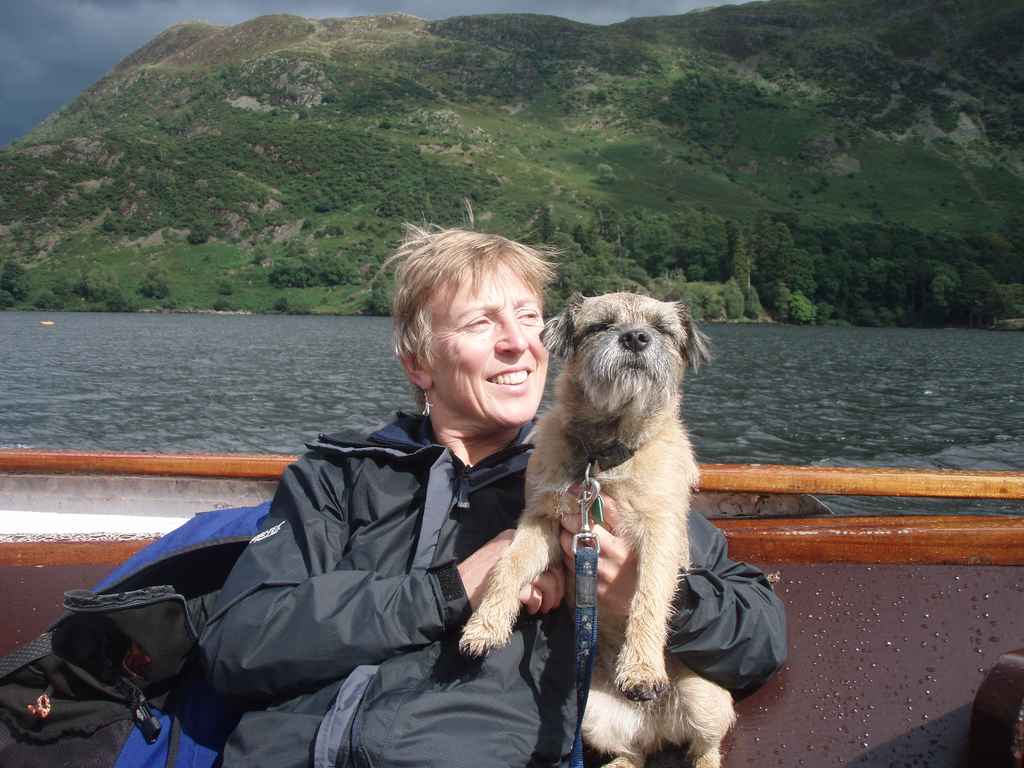
The only time Tiggy really frightened us was in the November of her first year in Oxford. She had taken herself off for a walk around the village and disappeared. I was on my way down from a film festival in the Lakes with Sandy when I had a call from a distraught Richard about his missing dog. He had been all round the neighbourhood looking for her but by the time it had turned to dusk, and she had not appeared, he concluded she must be dead in a ditch somewhere. I got back around 8pm and set off on my bike, searching like mad for her. In a moment of clarity, I remembered that our vet’s parents lived opposite. I dropped in, desperate but unsure of how they could help me. It was after all a Sunday night. They advised me to call the Dog Warden. I did this but had no joy. So I rang the police and asked if they had a Border Terrier with a harlequin collar in their care. ‘No,’ answered the constable on duty, ‘but I’ve got a Norfolk Terrier with a red, yellow and green diamond collar.’ Sounded promising. I dashed over to Oxford Police Station and burst into the reception. I suddenly got cold feet. ‘How will you know if it is my dog?’ I asked. ‘Oh, I think we’ll know.’ The policeman answered. They fetched the Norfolk Terrier from a room behind the desk and to my joy it was Tiggy.
I yelped with happiness and she squirmed with delight in the policeman’s arms. As he leant over the counter to let me take her, the excitement became too much and she piddled all over the policeman, the counter and the floor. ‘I think we can agree that is your dog.’ He said, looking ruefully over at his colleague and then down at his shoes. To date, Tiggy is the only member of our family to have spent time in a police cell.
Over the course of her long life – 15 years and 9 months equals about 110 in human years – she had many experiences and made countless friends. For several years when I was on the lecture circuit, she would come with me to theatres and halls, sometimes on her own, often with Mattie, her half-sister, who we acquired in 2011. She would walk onto the stage and either sit at my feet or clamber into her basket, often with her back to the audience. Sometimes she would stand up if there was applause at the end but as often as not, she was quite content simply to be there with me. It is a matter of record that when I took the dogs to lectures, I sold more books.

At home and in the garden she had two favourite play things. The first were tennis balls. She would run to catch them and not always give them back, so we usually had two or three when playing with her. If she particularly liked a ball she would roll on it, sometimes growling to herself, and then she would lie on her back, playing with the ball between her paws. It would slip out and she’d be after it again, rolling on it and repeating the same process over and over. Borders are known in Kent as otter dogs, and if you ever saw Tiggy lying on her back playing with a ball you could see why the name was so apposite. She could find a tennis ball in a hedge or under a plant with consummate ease. Once when I was waiting for the boys at school, she nipped into a bush next to the tennis court and came out with a ball. I congratulated her and told her to sit, but she was off again, into the bushes, and produced a second ball, and a third. By the end of about 15 minutes, she had laid 23 tennis balls at my feet.
Her other favourite toys were flowerpots. If I was planting, she would grab any flowerpot I had emptied and would dash off with it, as far away from me as she could. She would then have her own private game of chuck the pot. She would dive her head into the pot then fling it into the air and jump to catch it. The game could go on for several minutes until she got tired or the pot broke. She would then roll on it and chew the rim. For several years I had flowerpots with teeth marks in them. I still do have a few left and they will be a reminder of that game.
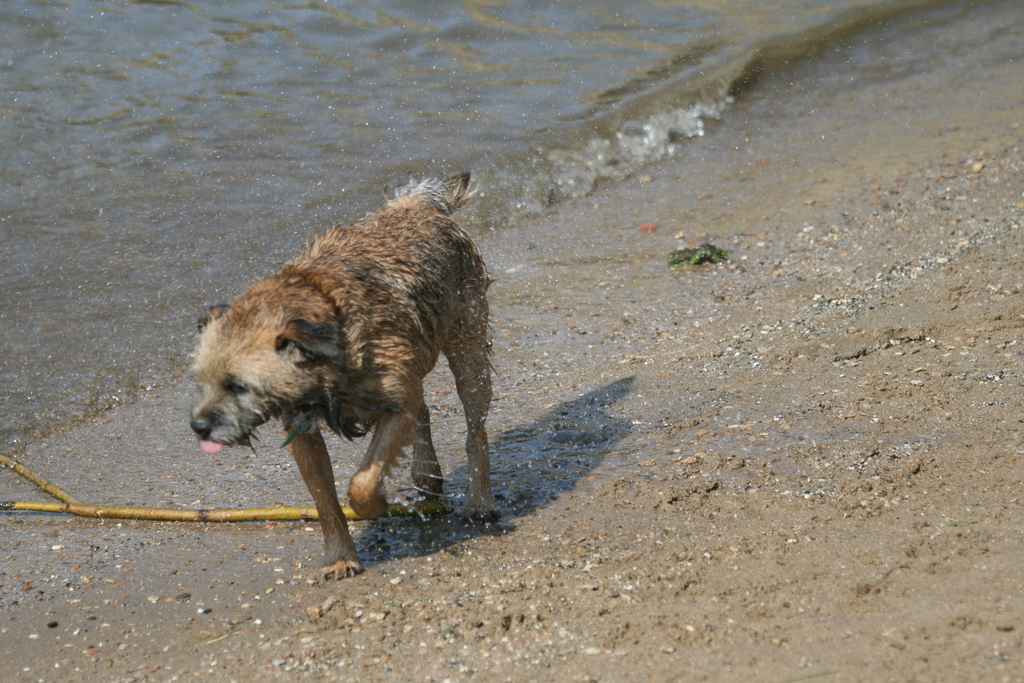
There was the occasional funny mishap too. One sunny afternoon in Wallingford, Sandy and I had taken Tiggy for a walk along the riverbank on the opposite side to the rowing club. We were watching Simon training so had walked quite a few kilometres. As we headed back upstream Tiggy went down to the river’s edge for a drink. It was the cows’ drinking spot, so the beach was churned up and very muddy. By the time she re-joined us she had thick black mud halfway up her legs. We crossed into the final field where there were no cows but people lying around in the sun. I pointed to a couple who were topless and cuddling. I said: ‘In a bad film Tiggy would run across their backs leaving muddy footprints.’ To our horror that is exactly what she did. I don’t think she had planned it, but they were in her path and she saw no reason to divert. The boy was shocked but fortunately saw the funny side of it.
One final memory was of a photoshoot for my 50th birthday. We’d decided to have a family photograph taken and of course Tiggy was involved. The photographer had tried to get us to do characterful poses, but she was aiming at an outcome that would be too saccharine. Tiggy was in the centre of the group and was feeling mischievous. We were all piled up ready for the shot when she leapt up and started furiously licking Chris’s ear. We all fell about laughing and to this day it is the best family photograph we possess.
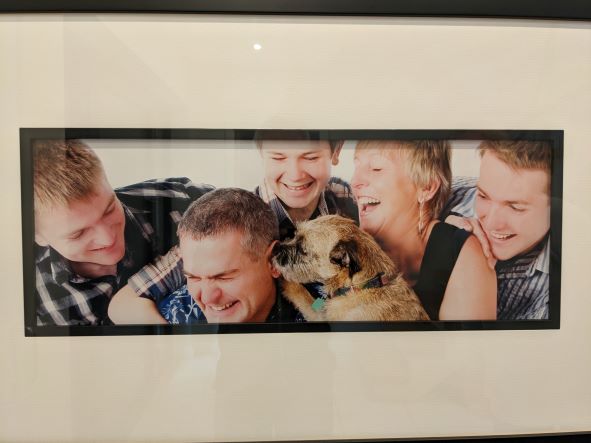
There we are: a long life full of walkies and adventures. She leaves a huge gap in our family life but one that will be partially filled with the most wonderful memories of a dog who, for us at least, was like no other. She was a treasure and a joy, a constant, loyal, devoted companion, and a hilarious trouble-maker.
RIP Tiggy.
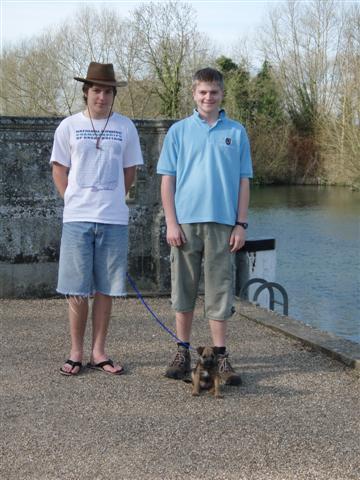
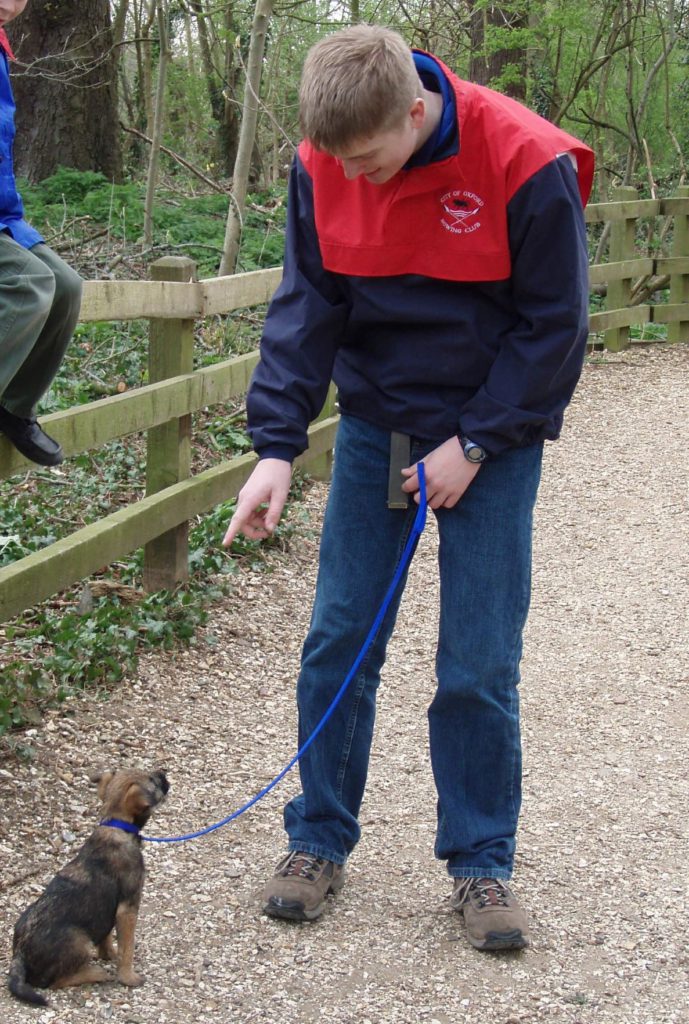
Tiggy was cremated on 29 September 2022 and her ashes are buried in the garden under our favourite tree. While we were building a new path this summer she insisted on lying on the freshly dug soil exactly where Chris was about to lay the weed membrane. So we thought it apposite to bury her little box there. She has a flat stone and a flowerpot on a stick to mark her grave.
